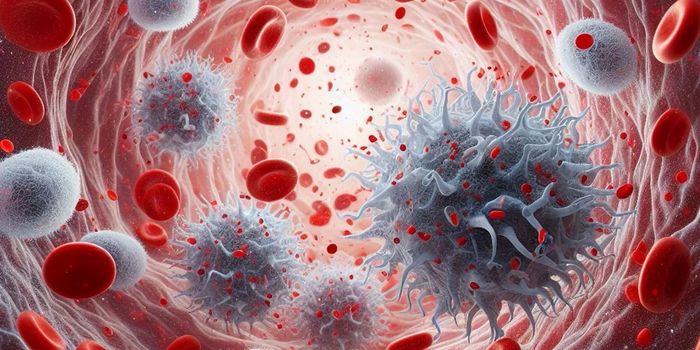Potential Bcl-2 Targeted Therapy for Relapsed Multiple Myeloma Patients
In June 2018, a new first of its kind drug class for chronic lymphocytic leukemia (CLL) and small lymphocytic lymphoma (SLL) was approved by the Food and Drug Administration in the United States. The target of this new drug class is Bcl-2, which is an apoptotic, or programmed cell death, regulator. Bcl-2 controls cell death through mitochondrial membrane permeability mechanisms with caspases. Bcl-2 is located on chromosome 18, and is considered an oncogene; this sequence can, and is, involved in translocations or mutations resulting in deregulation of expression in tumorigenesis. Tumor cells must survive inhospitable conditions including hypoxia and loss of nutrient supply when they become advanced enough; each of these contribute to tumor cell damage susceptibility and apoptosis. Tumor cells must adapt by gaining mutations that inhibit that apoptotic process which is what happens with Bcl-2 mutations.
Bcl-2 family members, there are reported to be about 20 total related proteins, act to create protein channels or pores within the mitochondrial membrane allowing the release of factors like Cytochrome C. These factors are intermediaries as part of one apoptotic pathway. When Bcl-2 expression is affected by mutation, these factors cannot be released as a part of the apoptosis mechanism of the cell.
In mutated lymphocytic cells, there is high level of expression of proapoptotic proteins at the ready but they are stuck waiting by the blocked Bcl-2 pathway. Patients with these primed mutated lymphocytes, like those with CLL, readily die when another apoptotic agent outside of that Bcl-2 mediated pathway is introduced in conjunction with this new drug class.
Additional investigations are being made using Bcl-2 targeted drugs for other conditions like Multiple Myeloma (MM), which does not involve an altered chromosome 18; MM cells are plasma cells with a translocation between chromosomes 11 and 14. However, one group of researchers published their investigation in Leukemia on August 3, 2018. MM patients have overexpression of anti-apoptotic proteins like Bcl-2; they found that combination therapy which included venetoclax, the Bcl-2 targeted drug approved by the FDA in June, had a promising response rate in relapsed myeloma patients. This type of pretreated myeloma patient has few options for disease free survival long term. This new approach may prove to be clinically relevant in the near future after further research is conducted.









